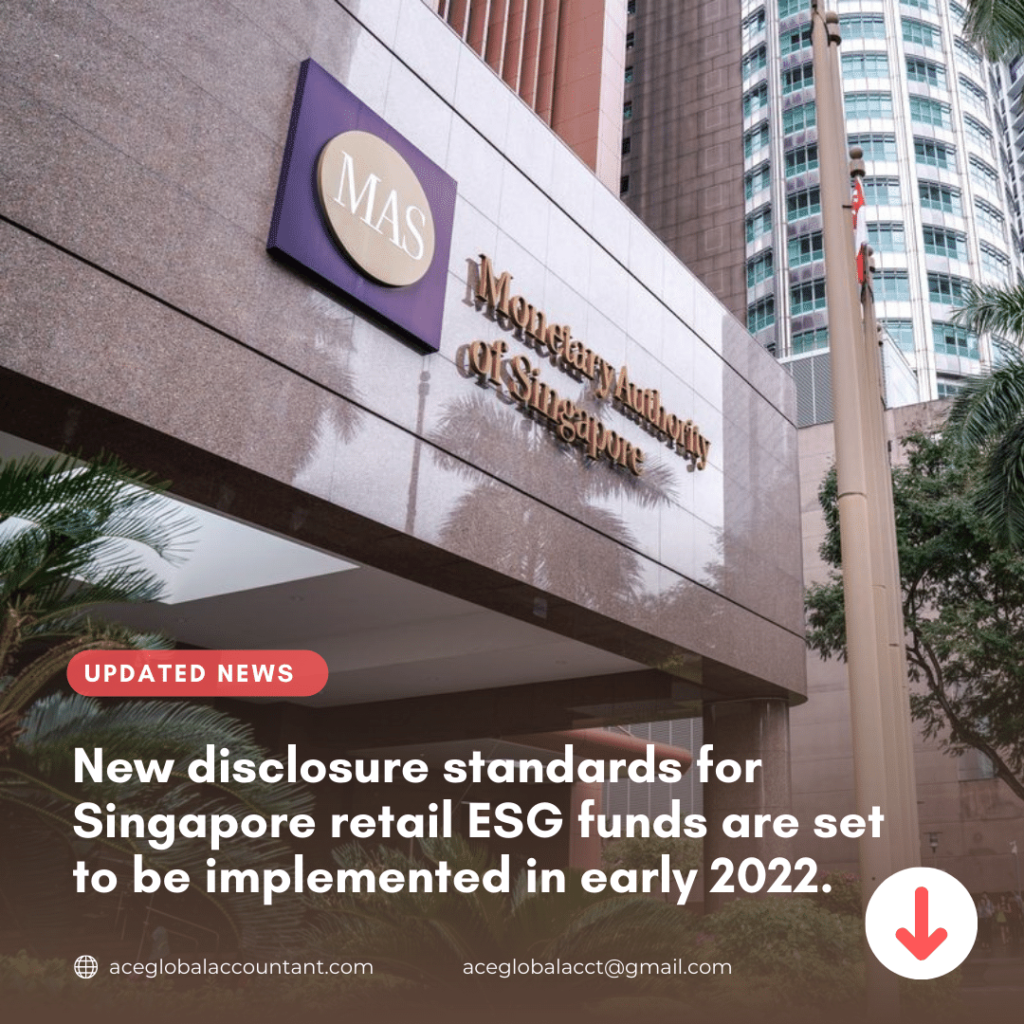 0
0
SHOPPING CART

Early next year, the Monetary Authority of Singapore (MAS) will lay out its regulatory expectations on the disclosure criteria that retail funds in Singapore with an ESG (environmental, social, and governance) investing goal must achieve, according to its managing director Ravi Menon.
Mr. Menon stated in a speech on Wednesday that with improved disclosure in place, investors will be able to make better decisions. Investors will also receive more information on the fund’s investing methodology, as well as the risks and restrictions connected with the fund’s ESG approach, from a single offering document. They will also receive monthly reports on whether an ESG fund’s investment objective has been accomplished. The attention comes amid rising attention on whether ESG funds have been correctly labeled, raising the risk of greenwashing.
There are several ESG grading techniques available on the market. A 2020 Milken Institute research examined the performance of 943 businesses in 2018, the most recent year for which all ESG ratings from three major rating agencies – RobecoSAM, Sustainalytics, and Thomson Reuters – were available.
The study revealed that the three rating agencies assign significantly different ESG ratings, with a correlation of less than 0.5 to a majority of the firms. The only exception is for the poorest performers. There, the rating agencies agreed – as evidenced by a correlation of 0.95 or higher – for just 10% of the businesses at the bottom of the list in terms of ESG standards. In his address, Mr. Menon stated, “We need to ensure that as green investments become more popular, there are robust transparency standards in place.”
He also mentioned that there are over 200 guidelines, standards, and other types of advice on sustainability reporting and climate-related disclosures. “As a result, selective reporting and inconsistent disclosures that are not comparable are commonplace.”
Some firms, for example, claim absolute reductions in greenhouse gas emissions, whilst others report carbon intensity reduction measures. Some firms claim year-to-year decreases, while others show reductions across many years.
As Mr. Menon pointed out, having green finance as a “key enabler” for the transition to a sustainable future comes at a time when climate change is occurring at a “rapid, widespread, and intensifying” rate, as stated in the recent report from the United Nations Intergovernmental Panel on Climate Change.
Global warming has now exceeded 1.1 degrees Celsius over pre-industrial levels, making this the hottest period in 125,000 years. “With each year that we wait to lower global emissions, the challenge becomes more difficult and costly,” Mr. Menon added.
According to statistics from KPMG research, the number of assets invested in sustainable initiatives is quickly increasing, with about one-fifth of all assets worldwide currently in funds that utilize some sort of ESG criteria.
However, Mr. Menon pointed out that green financing has yet to gain traction. According to the International Energy Agency, worldwide investment in energy projects must achieve more than double from present levels by 2030 in order to achieve net-zero emission targets by 2050.
Given the obstacles, he believes that efforts must be done to enhance the quality, availability, and comparability of data, definitions for green and transition activities, and disclosures by establishing a uniform set of global standards.
Bankers told The Business Times that this is a positive start toward protecting individual investors from “greenwashed” products. “The ripple effect of a well-structured standard will also stimulate a corrective alignment mechanism across company reporting, fund manufacturers, and rating agencies; thus equipping retail investors with ESG insights to make more informed investment decisions, while ensuring their investments are channeled into ESG funds,” Tan Siew Lee, head of wealth management Singapore, said.
The institution will assist in the development of a pipeline of talent and leadership in sustainable and green finance throughout the career range. NUS stated in a news release that the institute intends to hire more than a dozen research experts from across the world. “It will assist firms in acquiring the multidisciplinary knowledge required to integrate sustainability concerns into their business strategy and investment decisions, as well as to measure their environmental and social performance.”
The development of a framework for measuring and assessing sustainability and effect is a primary research priority of SGFIN. The framework will attempt to assign a monetary value to a company’s environmental and social performance. It seeks to solve the absence of consistent and standardized ESG data in Asia by capturing environmental and social data on Asian businesses using contemporary statistics and sophisticated machine learning methods.
“The three green finance excellence centers in Singapore will complement one another,” said Mr. Menon, referring to the Sustainable Finance Institute Asia, the Singapore Green Finance Centre, and now, SGFIN. “The expanding breadth and depth of research in sustainable finance will offer a solid foundation for Singapore’s developing reputation as a global green finance hub.”
To learn more about Singapore incorporation, economy, banking, etc., feel free to call/WhatsApp us at +65 90612851 or email us at aceglobalacct@gmail.com. Alternatively, you may leave us a reply using our contact form below.
Keep in touch to receive the latest listing, news updates and special offers delivered directly to your inbox.
